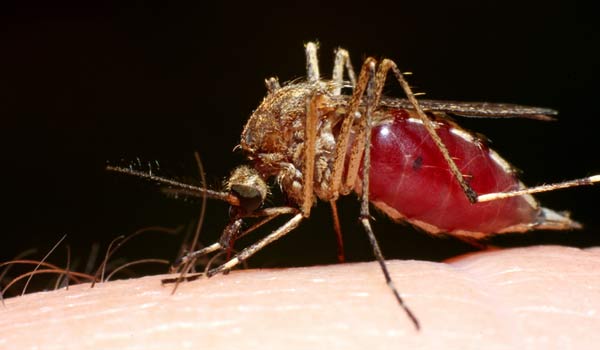West Nile Outbreak Concerns Rise: Is Pesticide Spraying Safe?

The use of pesticide spraying to combat mosquitoes and curb outbreaks of West Nile virus has sparked concern regarding the health effects of the chemicals used, but experts say, in these cases, the benefits of spraying far outweigh the risks.
Aerial pesticide spraying began on Thursday in Dallas, where an outbreak of West Nile virus has infected 200 people and killed 10. Pesticide spraying also recently began in parts of New York City.
There are several reasons why aerial pesticide spraying for West Nile is considered safe. For one, these sprayings use very small amounts of pesticides — much lower than the amounts used on agricultural crops, said Robert Peterson, a professor of entomology at Montana State University.
Even if someone was outside during the spraying, "the amount of insecticides that they would be exposed to is below any amount known to cause any adverse effects," Peterson said.
Because the exposure to these pesticides is negligible, the risks to people's health are negligible, Peterson said.
During a spraying, a tiny cloud of aerosolized pesticide is released from a plane, Peterson said. The droplets are very small, and intended to fall on, and kill, mosquitoes. Even larger insects are typically not affected by the spraying, because the droplets bounce right off them, Peterson said.
In addition, the modern pesticides used in these sprayings have a very short life in the environment, and are degraded by sunlight into non-toxic chemicals, said David Savitz, an environmental epidemiologist at Brown University.
Sign up for the Live Science daily newsletter now
Get the world’s most fascinating discoveries delivered straight to your inbox.
"It will kill the things you want it to, and disappear very quickly thereafter," Savitz said.
When public health is threatened, authorities must balance the risks of an action — in this case, exposure to pesticides — with the benefits — reducing the spread of West Nile, Savitz said.
In Dallas, where West Nile cases have reached a high level, authorities have made a sound judgment to use pesticide spraying, Savitz said.
To avoid direct exposure to pesticides, the New York City Department of Health recommends people stay indoors during the spraying when possible, and remove children's toys and belongings from outside.
While the chemicals used in these sprayings aren't known to be harmful to people "It's so easily avoided, it makes sense to try to avoid that possibility if you can," Savitz said.
Generally, there have been concerns over pesticide exposure for pregnant women, because it's known that the fetus is especially sensitive to environmental chemicals, Savitz said. However, there's no evidence that the chemicals used in pesticide sprayings for West Nile pose a risk to the fetus, Savitz said.
Exposure to a large amount of any substance, including pesticides, can be harmful. People exposed to large amounts of pesticides, can experience acute neurological problems, Savitz said.
Pass it on: The risks of aerial pesticides spraying on people are negligible.
Follow Rachael Rettner on Twitter @RachaelRettner, orMyHealthNewsDaily @MyHealth_MHND. We're also on Facebook & Google+.

Rachael is a Live Science contributor, and was a former channel editor and senior writer for Live Science between 2010 and 2022. She has a master's degree in journalism from New York University's Science, Health and Environmental Reporting Program. She also holds a B.S. in molecular biology and an M.S. in biology from the University of California, San Diego. Her work has appeared in Scienceline, The Washington Post and Scientific American.










